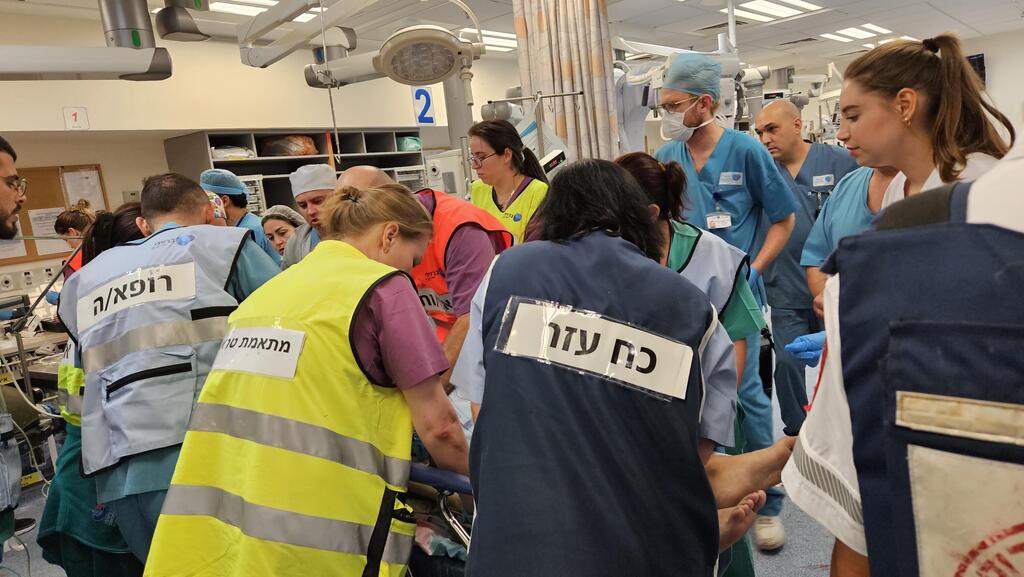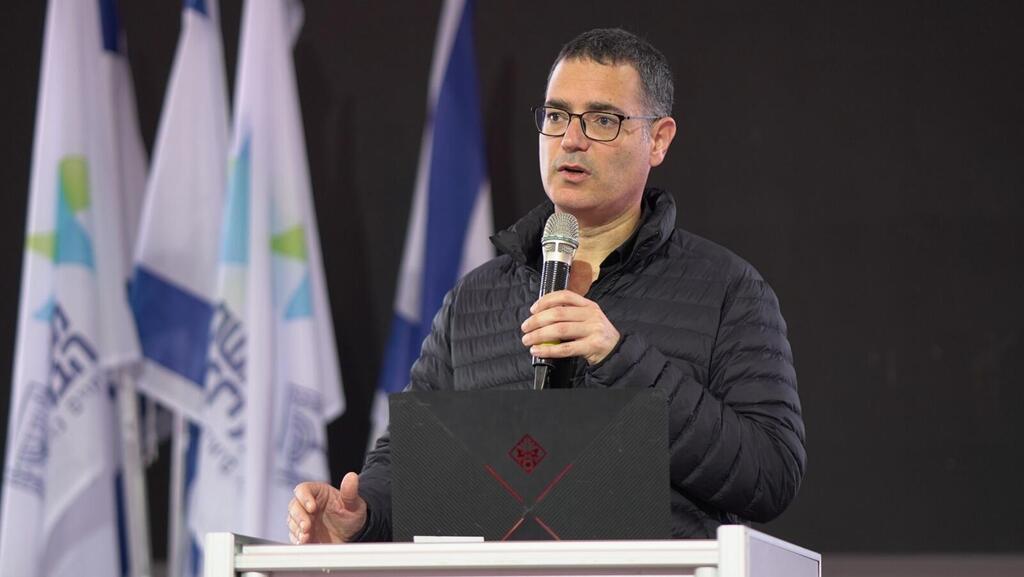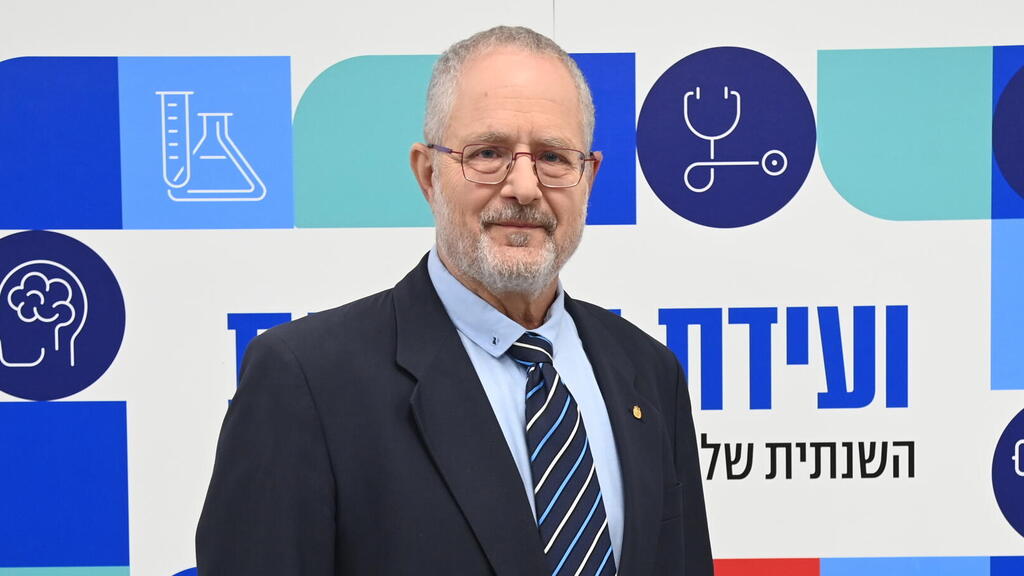The Health Ministry published a report on human resources in Israel's health system on Wednesday with data showing that the number of doctors in Israel is on the rise – but still significantly lower than the average of OECD countries. Some 25% of doctors in Israel are age 67 and older, compared to only 17% in 2010. Additionally, the report shows that 26% of specialist doctors in Israel are over the age of 67 and nearing retirement, compared to 16% in 2010.
More stories:
According to data demonstrating statistics from the end of 2022, Israel has 3.4 doctors per 1,000 residents, up from 3.2 in 2018, but less than the OECD average of 3.7. The report also includes data from 2023, indicating only 30% of new medical licenses in Israel were issued to graduates of local schools throughout the year. Overall, only 42% of doctors in Israel studied in the country, while the rest studied abroad.
The highest number of doctors specialize in internal medicine. However, only 100 doctors have specialized in pediatric endocrinology, a field whose central focus is diabetes, with obesity rates in Israeli children and adolescents increasing over the last decade. In addition, there are only 107 neurosurgeons in Israel.
Nevertheless, the number of postgraduate training physicians is actually increasing, and in 2022, a record number of new in-training physicians were incorporated into the system with 1,955 postgraduates.
A more significant shortage is observed among nursing staff. According to data from 2020-2022, there are only 6.6 nurses per 1,000 residents in Israel, compared to the 9.9 OECD average.
However, the number of new licenses issued to nurses is on the rise – but the gaps compared to OECD countries are still far from closing due to parallel population growth, among other things. Conversely, the number of dentists in Israel is actually higher than the OECD average, 0.85 compared to 0.77 respectively.
There are also troubling figures in other health professions, including the number of clinical dietitians, which stands at only 0.41 per 1,000 people, and 0.67 clinical communication specialists.
'We must keep new doctors in the country'
The OECD health care report published eight months ago offered sharp criticism of the shortage of doctors in Israel and pointed to inadequate planning on the part of the government. "Looking ahead, the aging population would require an increase in the number of doctors in order to meet the growing needs unless others in the health system assume more substantial roles in providing health care," the report noted.
According to Health Ministry Director-General Moshe Bar Siman Tov, "Israel's health care system is one of the best in the world. The main reason for this is excellent and high-quality human resources. Since the beginning of the war, the health care system has proven to be Israel’s national home front. The system has treated thousands of injured and continues to do so at all times.
"We understand that in order to address future challenges, it’s necessary to add and expand the number of those involved in the public health care system. One of the challenges that the health care system will face in the coming years is the implementation of the reform in medical manpower aimed at ensuring the quality of medical training for students studying abroad, according to Bar Siman Tov
"In 2019, the 'Yatziv Reform' came into effect, which disqualified foreign medical schools that don’t provide education at a proper and satisfactory level. Thus, starting next year, students studying at these schools won’t be able to obtain a license to practice medicine in Israel," he said.
“Therefore, in order to address the many challenges that the system is dealing with even before the war in Gaza, we have worked in the past year to increase the number of new medical students to 2,000 students per year until the end of the decade, as well as to increase the number of nurses in Israel.”
“In addition, the Health Ministry is working to increase the number of specialist doctors in all fields and geographic areas through funding for postgraduate medical students in health maintenance organizations," he concluded.
Dr. Zeev Feldman, cChairman of the Israel Medical Association and dDirector of the Pediatric Neurosurgery Unit at the Sheba Medical Center, said following the report: "Alongside positive trends such as an increase in the proportion of women and the number of specialists, the ratio of doctors to the population in Israel is declining, contrary to the trend in other OECD countries.”
“The meaning of these numbers is reflected in the increasing burden on each doctor, with longer waiting times for surgeries and consultations for Israelis. The situation worsened after October 7,” he added.
"Unfortunately, thousands of Israeli doctors have moved their practice abroad to work in a professional and personal environment that allows them to express their professional abilities better. The Health and Finance Ministries must address these two national tasks. One is to train more doctors in Israel, and the other is to keep them in the country,” Feldman said.
“I call for urgent and immediate action to address the burden, fatigue and working conditions of doctors in Israel. The global shortage means that Israel is competing with Western countries for this precious resource. We can’t continue on the same path and expect different trends to occur. Action must be taken now in order to change them," he concluded.






